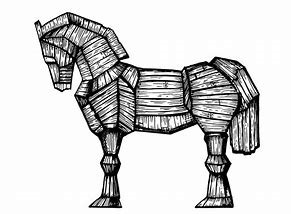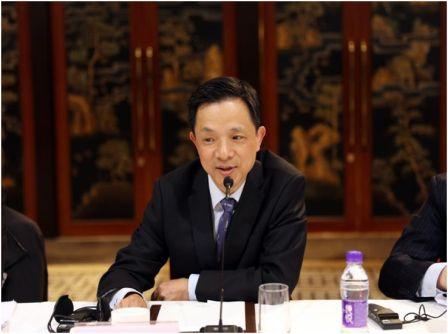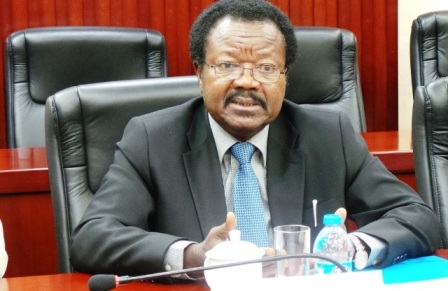President Koroma: “Serious Chinese Investors” for Sierra Leone
During his pacesetting Press Briefing last Friday, July 5, 2013, at the Credential Hall, State House, in Freetown, President Ernest Bai Koroma said that part of the highly positive result of his recent trip to China was that he was able to attract “serious Chinese investors” into the country. The media didn’t miss the implication of the president’s words in the question and answer session that followed: one veteran journalist asked whether there have been “unserious Chinese investors” in the country. While in China recently, President Koroma visited the southern China province of Hainan: where a Memorandum of Understanding was signed with the China Hainan State Rubber Industry Group Company for the development of rubber plantation and rubber-processing factory in two of Sierra Leone’s districts – Tonkolili District in the Northern Province and Moyamba District in the Southern Province. ‘Hainan Rubber…’ is an example of one of the “serious Chinese” companies the President spoke about last Friday.
Hainan Rubber…is a “serious Chinese company”
‘Hainan Rubber…’ is principally engaged in the planting, processing and distribution of natural rubber. The company is worth $39billion. It has 76,000 employees in China. The company has approximately 3.18 million acres of rubber forest in China. .The company is also involved in the cutting and distribution of rubber trees. With its subsidiaries, the company operates its businesses primarily through the purchasing and processing of rubber raw materials, deep processing of rubber timbers, electronic trading of rubber products, rubber product trading and logistics services, among others. Its major products are condensed latex, dry rubber, rubber logs and forestry boards, among others. Having the largest production base of natural rubber in China, Hainan Rubber…is ambitious – striving to create the largest natural rubber enterprise in the world in the next five years.
Hainan Rubber ….actively implements a “Go out” policy. Hainan’s home is Southeast Asia, but it has now turn its expansion spotlight on Africa. Hence, the expansion has embraced Tonkolili and Moyamba districts in Sierra Leone, West Africa. Since the President has assured us that Hainan Rubber is a “serious Chinese” company, we presume that they would have learned about the almost 100 years history of the growing of rubber in neighbouring Liberia, and would not subject (or, maybe, ‘subjugate’) Sierra Leone to the ‘Liberian rubber slave experience’
Liberian ‘rubber slave experience’
For over 80 years now, the Firestone Tire and Rubber Company has operated the world’s largest rubber plantation in the world in Harbel, southern Liberia. Firestone signed a concession agreement with the government of Liberia to lease over one million acres of land in 1926 – for 6 cents per acre, for a period of 99 years. (Yes, that figure is six cents per acre!!). In 2005, Firestone signed a new 37-year agreement with a transitional government in Liberia to lease the land for 50 cents per acre. All rubber produced in Liberia is sent to the United States – for processing into tires. No processing or manufacturing is done in Liberia. Firestone workers must tap trees in order to extract the latex necessary for making rubber tires. The rubber tappers must meet a daily production quota or their already low wages will be halved. By Firestone Natural Rubber Company CEO Dan Adomitis’ own admission on CNN not too long ago, it would take over 21 hours to meet the quota. As a result, tappers are forced to take their children and wives to work. Children are forced to carry two 70 pound buckets of rubber on their shoulders for miles. Tappers and their children must apply toxic pesticides without protection. Generations of Liberian intellectuals and social and political activists have denounced the form of near-slavery of the U.S. Firestone company. The rubber grown in Liberia and exported raw to the U.S. contributed greatly in ensuring that the auto industry in the US has been the unparalleled global leader, and the American economy the most buoyant in the world since Ford’s Model T went into mass production in the US in the early part of the 20th Century – but, it has left Liberia during the same period as one of the poorest countries on earth. Many Liberians have gnashed their teeth over this economic injustice; but, hardly anything was done about it…Until recently…..
Executive Order 50
The Harvard University-educated Nobel Prize-winning President of Liberia, Ellen Johnson-Sirleaf, issued Executive Order Number 50 recently. That placed a moratorium on the exportation of unprocessed natural rubber from Liberia. “… It is intended to curb the decline in the Liberian rubber sector until policies and frameworks appropriate to the situation are instituted, and to ensure redevelopment, new development, increased production, increased job opportunity and massive revenue to government”.
According to one of the most prestigious newspapers in Liberia, The Daily Observer, when Firestone got established in Liberia in the early 20th Century, most government officials got involved in the cultivation of rubber in scores of small plantations. This trend still continues – as government officials scramble for land to grow rubber. But one thing is constant, all these small rubber plantation owners do not ship rubber, they sell it to either Firestone, through their middle buyers, or one of the other big rubber plantations. Proud Liberians are in anguish over the reality that Liberia is renowned as the highest producer of rubber in Africa, but, cannot boast of a single factor to produce a mere rubber band or a plastic bag. These patriots would point out to what they described as the ignominy of lesser rubber producing countries like Ivory Coast and Ghana manufacturing all types of rubber products. It is heartening that a “serious Chinese investor” like Hainan Rubber is starting off with not only growing rubber trees in Tonkolili and Moyamba, but, in setting up processing plants.
Janet C Sturgeon, a U.S. ‘China Watch’ intellectual, wrote a Paper recently that that states that “Rubber plantations in Yunnan are destroying China’s richest biodiversity hotspot. …..” Over the past couple of years, the government in Xishuangbanna, a prefecture in south-west China’s Yunnan province, has finally woken up to the destructive environmental impacts of monoculture rubber plantations. Problems they have identified include rapid biodiversity loss, depleted water resources (rubber trees suck up huge amounts of water), and regional climate change – as Xishuangbanna becomes hotter and drier… Two years ago, the Xishuangbanna Tropical Botanic Garden (XTBG), a local research institute in China, developed government-approved plans to urge ethnic minority farmers to restore their rubber fields to natural forest. But since 2003, with the dramatic rise in world rubber prices, farmers have enjoyed huge increases in household incomes from rubber. They are now understandably reluctant to accept significant income loss from reforestation on their rubber lands.
Changing from growing cocoa to growing rubber
In one of the countries in the Mano River Union, Ivory Coast, farmers are changing from growing cocoa to growing rubber – rubber brings in more income than cocoa. The rubber boom is a worry for chocolate makers who rely on West African producers that supply nearly three quarters of the world’s cocoa. Ivory Coast’s rubber output has climbed to a record 234,000 tonnes in 2011, from 183,000 tonnes in 2007, according to the Singapore-based International Rubber Study Group (IRSG). The Ivorians plan to produce up to 600,000 tonnes by the end of 2020. Ivory Coast, and other West African countries, are responding to a voracious global appetite for rubber – with China being the most gluttonous. Hainan Rubber is putting its roots in Tonkolili and Moyamba districts, but, if, as Ivory Coast is indicating to us, the growing of rubber is more lucrative than growing of cocoa, what is to stop farmers in Kailahun and Kenema from jumping on the rubber gravy train? And, what would be consequences for our ‘food security’ in the already fragile tropical rainforest ecological zone of Sierra Leone (Sierra Leone has lost over 80% of its virgin tropical rainforests; and, exponential population growth in our densely populated country has meant that land is left to fallow for shorter and shorter periods as most of our farmers still engage in centuries-old slash-and-burn subsistence agriculture)? Expanding rubber plantations could be ecologically-cataclysmic for the ecology here. This would call for ‘serious juggling’ of competing variables as a ‘serious Chinese company’ plants its stake here.
Global demand for rubber increases; China stimulates a ‘rubber boom’
A study from The Freedonia Group reports: “Global rubber consumption is forecast to rise 4.3 percent per year through 2015 to 30.5 million metric tons. Rubber demand will be stimulated by an increase in tire output growth as global motor vehicle production accelerates. Because replacement motor vehicle tires represent by far the largest market for rubber, strong increases in the number of motor vehicles in use throughout the world will significantly boost the amount of rubber consumed worldwide….”. The Asia/Pacific region is by far the largest regional market for rubber, accounting for 60 percent of global demand in 2010. In addition, the region will register the fastest growth in rubber consumption through 2015. The massive Chinese rubber market, which alone accounted for nearly one third of global rubber demand in 2010, will record the strongest gains of any major nation through 2015. The large amount of motorcycle and bicycle production in the country supports significant demand for rubber utilized in non-motor vehicle tires.
According to a report from Commodity Online, “Natural rubber demand in the world’s largest automotive market of China continued to boost the commodity as the demand expected to climb by nearly 8 percent, analysts said. According to China Rubber Industry Association, the country’s rubber demand is expected to hit 2.89 million tons on strong growth in the vehicle market”. China’s rubber imports are also on the rise as China has overtaken the U.S. as the world’s largest auto market in 2009.
African Mineral’s and London Mining’s iron ore are destined for the Chinese market. The “serious Chinese investors” have to work with ‘very serious Sierra Leonean’ economists and politicians and activists so that China does not act as crudely insensitive in its ‘economic invasion’ of Sierra Leone as the British and Americans were (have been) for over a century. The most ‘serious business’ that must be seriously thought over is that Sierra Leone is not a colony on planet Mars, but, part of the same planet earth that the Chinese live in: seriously!!
Oswald Hanciles
Stay with Sierra Express Media, for your trusted place in news!
© 2013, https:. All rights reserved.






